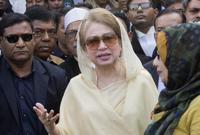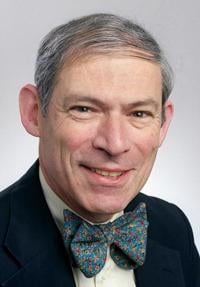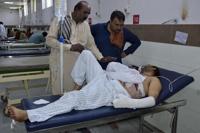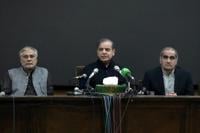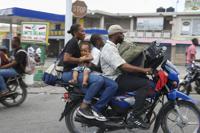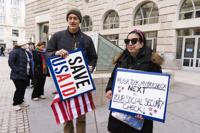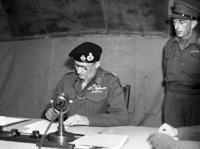DHAKA, Bangladesh (AP) — Bangladesh’s ailing former Prime Minister Khaleda Zia returned to the country from London on Tuesday morning after four months of medical treatment, adding to pressure for its interim leaders to hold elections.
The South Asian country has been under a government led by since former was ousted in a students-led mass uprising in August last year.
Zia, Hasina’s archrival, and her Bangladesh ��ɫֱ��ist Party have been pushing Yunus' government to hold a national election in December to return the country to democratic rule.
Under Hasina, many opposition political parties including Zia’s BNP had either or accused the authorities of rigging them. Many welcomed Hasina's overthrow as a chance to return to democratic elections, but suspicion and uncertainty have surfaced in recent months about the new government's commitment to hold elections soon. It has said the next election will be held in either December or by June next year, depending on the extent of reforms in various sectors.
for many years. Her elder son, leads the party as acting chief from exile in London.
After Zia landed at 10:43 a.m., she was greeted by senior party leaders at Dhaka's main airport. Zia, sitting in a wheelchair, smiled as she repeatedly raised her right hand to receive greetings.
Crowds gathered outside Hazrat Shahjalal International Airport to welcome the returning leader, amid tight security. Thousands of supporters, many carrying Bangladesh and BNP flags, waited along about a 9-kilometer stretch of road leading to her house in Dhaka's upscale Gulshan area.
Accompanied by her two daughters-in-law, Zia arrived on a special air ambulance arranged by Qatar’s Emir Sheikh Tamim bin Hamad Al Thani, who also arranged in January. Zia suffers from various serious health conditions and she has not attended any public gatherings
Zia’s physical presence in the country has huge symbolic value for her party while Hasina is in exile in India.
Zia and Hasina have alternately ruled the country as prime ministers since 1991 when the country returned to a democracy after the ouster of authoritarian President H.M. Ershad.
Zia served the country as prime minister three times, twice for full five-year terms and once for just a few months.
During Hasina's 15 years in power, Zia was tried and jailed for 17 years in two corruption cases. Her party said the charges against Zia were politically motivated, an allegation Hasina's government denied. Later, Zia was released from jail on condition that she not leave the country.
Zia is the widow of former military chief-turned-president Ziaur Rahman, who was assassinated in 1981. Hasina is the daughter of Sheikh Mujibur Rahman, who led against Pakistan in 1971.


